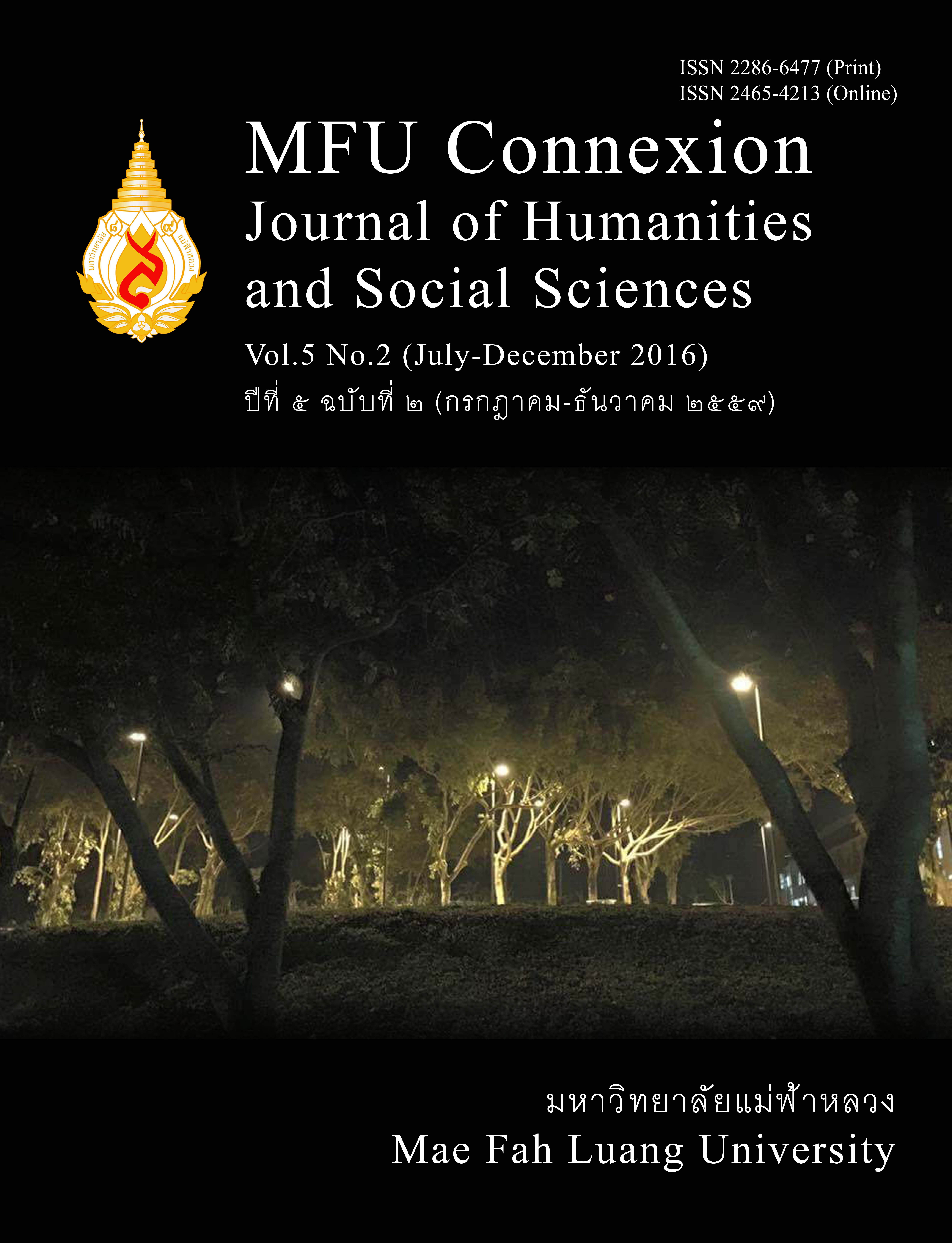Accessibility System of Health Services and Mechanisms of Health Service Rights for the Stateless Persons (in Thai)
Main Article Content
Abstract
This qualitative research article aimed to present the access to health system and mechanisms to provide access to the health service rights of stateless persons at Chiang Rai province. The key informants were 27, the central and provincial levels 9: the committee for setting guidelines of health care services for stateless person, the provincial working group and NGOs, the local levels 16: the health service units, the center's coordinator, community interpreters) and the stateless persons 2. The research instruments used the focus groups discussion, depth- interviews. The content analysis was using for data analysis.
The finding showed mechanisms to provide access to the health service rights of stateless persons were consisted of (1) the central mechanisms who defined policies, (2) the province mechanisms who developed mechanisms, access to health system and community interpreter curriculum, and trained community interpreters, (3) the people sector mechanisms who communicated and coordinated and (4) the local mechanisms who acted health service and were mentors of community interpreters. The accessibility system of health services was consisted of five systems: (1) database and register, (2) budget, (3) health services, (4) public relations, and (5) monitoring and evaluation. It found that the local mechanisms performed all systems in accordance with their original works, while province mechanisms and people sector mechanisms participated in the third system about the communication between stateless persons and health service units and in the fourth system about public relations, but their participation in the other systems were not clear.
Suggestions: Relevant people should (1) add the internal evaluation into systems and (2) improve the community Interpreter curriculum.
Article Details
Copyright
Connexion: Journal of Humanities and Social Sciences has an exclusive right to publish the accepted articles in any form. However, the author retains the following rights:
1. The right to the ownership of the article;
2. The right to use all or part of the article in his/her other works;
3. The right to re-produce the article for personal use or for use in the author’s organisation, in which case the author must obtain permission from Connexion: Journal of Humanities and Social Sciences;
4. The right to make copies of all or part of the work for educational use or for the author’s use in classroom teaching; and
5. The right to include the work (both the preprinted and printed versions) in an institutional repository.
References
ดรุณี ไพศาลพาณิชย์กุล. (2553) ข้อเสนอแนะเชิงนโยบายต่อสิทธิในระบบหลักประกันสุขภาพถ้วนหน้าของคนไร้รัฐ/ไร้สัญชาติ, วารสารวิจัยระบบสาธารณสุข, ปีที่ 4 ฉบับที่ 1, 19.
บุญมา สุนทราวิรัตน์ และคณะ. (2552) ความเป็นธรรมทางสุขภาพกับสิทธิมนุษยชน: กรณีชาวเขาไร้สัญชาติในประเทศไทย, วารสารวิจัยระบบสาธารณสุข, ปีที่ 3 ฉบับที่ 3, 372.
พงศธร พอกเพิ่มดี. (2553) ต้องสร้างหลักประกันสุขภาพสำหรับคนไทยไร้สถานะ, จาก https://sites.google.com/sitestatelessthaicenter/knowledge/txngsranghlakprakansukhphaphsahrabkhnthiyristhana [ค้นเมื่อ 22 สิงหาคม 2558]
วิชัย โชควิวัฒน. (2556) “วิจัย” สร้างรอยต่อ “พัฒนาระบบสุขภาพไทย”, HSRI FORUM พื้นที่แบ่งปันความรู้ สู่ระบบสุขภาพที่เป็นธรรมและยั่งยืน, ปีที่ 2 ฉบับที่ 1, 5.
วิวัฒน์ ตามี่. (2556) โครงการพัฒนาระบบและบริการสุขภาพสำหรับผู้ที่มีปัญหาสถานะบุคคลและสิทธิ, ม.ป.ท.: ม.ป.พ.
หิรัญญา ปะดุกา (บรรณาธิการ). (2558) รายงานผลการดำเนินงานประกันสุขภาพบุคคลที่มีปัญหาสถานะและสิทธิ, กรุงเทพฯ: บียอนด์ พับลิชชิ่ง.


